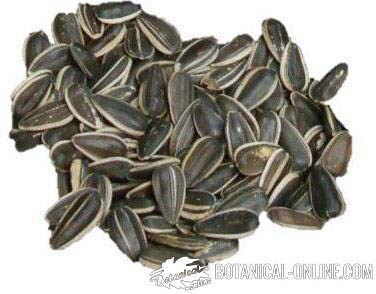Contents
Benefits of manganese
WHAT IS MANGANESE NECESSARY FOR?
What is manganese?
Manganese is a trace element or microelement essential for the body.
It is called trace element because the body requires this component in very low doses, but necessary.
In the body, this mineral is found in the liver, bones, pancreas, kidneys and brain (pituitary gland).
It is absorbed in the small intestine through the enzyme transmanganin, and when there is an excess in the body, it is excreted through the bile.
What is manganese good for?
 A balanced diet rich in vegetables, fruits, cereals and legumes is sufficient to meet the daily needs of manganese
A balanced diet rich in vegetables, fruits, cereals and legumes is sufficient to meet the daily needs of manganese
Manganese is involved in many vital functions:
- Antioxidant: Manganese is an antioxidant mineral that protects cells from damage caused by activity.
It is part of one of the substances with greater antioxidant power, superoxide dismutase.
- Metabolism: It is part of numerous digestive and metabolic enzymes. Without manganese it would not be possible to perform many processes of the body.
This mineral allows the degradation of carbohydrates so that the energy they contribute can be harnessed.
It also contributes to the metabolism of fatty acids, cholesterol, and immune function.
- Regulation of sugar: Intervenes in the use of insulin, so it regulates blood sugar levels.
- Bones and joints: Manganese, along with boron, is one of the trace elements that reinforces the health of bones. People who have adequate intake of calcium and vitamin D, along with manganese, significantly reduce the risk of fractures.
This mineral is suitable for the connective tissue and the joints, since it intervenes in the formation of the mucopolysaccharides that constitute the cartilage.
Symptoms of deficiency or lack of manganese
It appears that manganese is more important to animals than to humans, since symptoms of deficiency are not common in humans. Generally no deficits of this mineral appear since the body is able to keep it well for a long time.
- Manganese deficiency causes impaired glucose utilization in humans.
- Chickens develop a bone disease called perosis, due to manganese deficiency.
- Growth retardation, birth defects and metabolism problems have also been observed in animals when they had this deficit.
Sources of manganese. Foods rich in manganese
Where can manganese be found?
- Legumes, whole grains, spinach, leeks, asparagus, alfalfa, kelp seaweed
- Macadamia nuts, walnuts
- Green tea, cloves, fennel, cinnamon
Manganese Supplements
Manganese is added to multivitamin supplements.
![]() More information on minerals.
More information on minerals.








